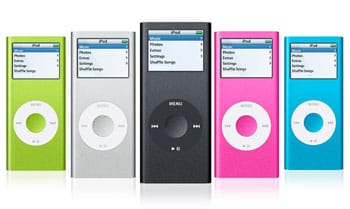The Power of Pariah Politics

So Greenpeace are taking a bite out of Apple:
Yesterday: "Jobs looks for a greener Apple" (FT, 3 May 2007):
"Electronic waste has emerged as a hot-button issue in recent months as environmental groups take aim at the toxins contained in computer equipment, such as the lead in cathode ray tubes and the arsenic contained in specialty glass."

Today Greenpeace say "jolly good but we're still watching..."
"Call for Apple to go even greener" (BBC News online, 3 May): "Greenpeace has given a cautious welcome to Apple's ambitions to be more environmentally friendly." http://news.bbc.co.uk/
Well isn't that good? Nice to see good news coming out of a campaign. And it is yet another testament to the power of pariah politics. I get annoyed with friends who try and justify their inaction and apathy by arguing that you can't single out companies (or politicians); that they're all as bad as each other etc. Yes you can. You pull one out - like Klein did to Nike in No Logo - and put them in the corner in the SHAME hat.
It's like kindergarten, you don't take one child out to tick them off, you single them out to give all the others a warning. ...and shame is more powerful than legislation. Companies can put aside millions as risk-assessed slush funds for when they break the law - but no brand can ever quite overcome the ignominy of, say, McLibel or Gap sweatshops, or (hopefully) Yahoo's disgraceful Chinese dalliance. It hurts their profits, and a kick in the profits is one of the few guaranteed ways to 'stimulate change'.
So if you want to change things - don't fine them - damage them, place a stigma on that brand. Let it stand as a warning that brands aren't above the conscience of consumers, even if they can pay their way out of every other crime they commit.

